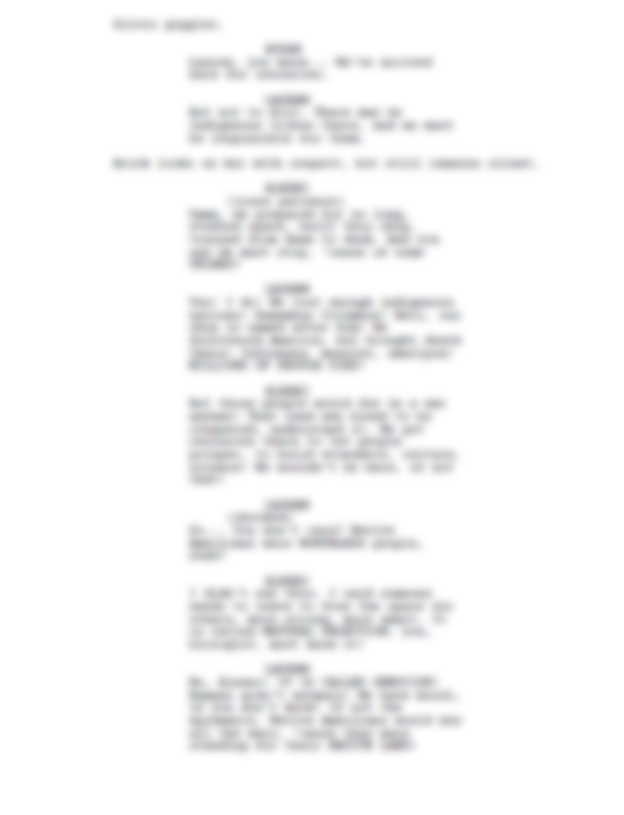I have not had much time to write, but I& #39;ve been reading a lot of scripts lately (7 pilots + 3 features in the last two weeks, and two more features in the bullpen). I wanted to post a thread about some observations I& #39;ve made, and maybe this will help in your writing and reading:
1. Reading a script w/out knowing the logline is both blessing & curse. Without benefit of the logline, the writer has to work harder to keep your attention. But, w/out the logline, the feeling of magic and surprise can be powerful reminders of why screenwriting is so amazing.
2. That said, surprising a reader may be a writer& #39;s most underutilized and powerful weapon. I am most excited when something I didn& #39;t expect happens, or if a character makes a choice that is unexpected. It must still make sense w/in the logic of the universe. And it must derive
from character& #39;s need/want and motivation for action must make sense. When a surprise happens, a reader gets an endorphin rush. Don& #39;t underestimate how much difference this can make in a reader& #39;s estimation of the whole script& #39;s value.
3. I see a lot of the same mistakes. A writer holds back on giving their protagonist a clear goal or mission (I use that word sparingly). They mistake mystery for character development. Keeping your protagonist& #39;s goals in the shadows will hamstring your script! Clarity is key!
4. When I see an "I" or "T" page I get worried. These are pages that contains one or two lines of description, then a big block of dialogue, and maybe a closing line of description or two, so it looks like a capital letter T or I.
Movies are motion. Don& #39;t get so caught up in what characters are saying that you forget to show what they are doing. If you can give characters motivated actions that reveal something about them, or helps advance their & #39;quest,& #39; you& #39;ll be helping us understand who they are.
5. Dialogue. This is a tough one. It& #39;s hard to teach how to write dialogue that reveals character, advances plot, and contains subtext, all without being long-winded or didactic. Hell--I think I& #39;m decent at dialogue and even I miss the mark on this.
But on-the-nose dialogue is like pornography--you know it when you see it. The best advice I can give for writers to avoid it is: Imagine how the character might say what they need to say without being able to say it outright. Then write a condensed version of that.
And of course, do it in that character& #39;s unique, idiosyncratic voice. And every character should sound unique. Cover up your character names and read all your dialogue aloud. Does it all sound the same? You need to go back and re-work that aspect.
6. Plot matters less than character change. I would rather see a story about a character who goes from 0 to 11 over the course of 60 or 100 pages but is literally just them in a contained space (hey, it& #39;s also marketable!) than a plot-heavy story in which characters don& #39;t change.
7. Change can be in a positive or negative direction. Regression is a valid situation to put your character through.
Rollercoasters have lots of positive and negative change, so they are a great metaphor to use here. (Just try not to end your characters where they began.)
Rollercoasters have lots of positive and negative change, so they are a great metaphor to use here. (Just try not to end your characters where they began.)
8. As a reader, I will always root for your script to blow me out of the water. But the bar is extremely high. And it hasn& #39;t happened often.
Now, I& #39;m doing this for free. Imagine those who are paid to do this. They are LOOKING for reasons to say no. Don& #39;t give them any.
Now, I& #39;m doing this for free. Imagine those who are paid to do this. They are LOOKING for reasons to say no. Don& #39;t give them any.
9. Be brutal with yourself when it comes to owning your script& #39;s shortcomings. When you receive feedback, even if it doesn& #39;t land for you, find a way to absorb the spirit of the note--the "note behind the note."
10. But also, be ultra-forgiving to yourselves. Writing a script is so. Freaking. Hard. Pick yourself up, dust yourself off, and own the rewrite. And celebrate what you& #39;ve accomplished in the meantime.
Thanks for reading. Keep writing, you& #39;re doing great. And to everyone who is waiting on notes--well, uh, I& #39;m working on it!
#PreWGA #WRACGroup #WritingCommunity #screenwriting @WRACGroup
#PreWGA #WRACGroup #WritingCommunity #screenwriting @WRACGroup

 Read on Twitter
Read on Twitter


